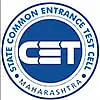JEE Main 2026 tips for slow learners include a clear understanding of the JEE Main 2026 exam pattern and syllabus, mastering the basics, using the right study material and rigorous revision.
Table of Contents
- JEE Main 2026 Exam Pattern
- How can Slow Learners Prepare for JEE Main 2026?
- Master the Basics
- JEE Main 2026 Plan a Schedule
- Refer to Basic JEE Main 2026 Resources
- Break the JEE Main 2026 Syllabus Into Chunks
- Focus on High-Weightage Topics
- Solve JEE Main Previous Years' Question Papers
- Revise Regularly
- Take Mock Test
Some students might have a difficult time preparing for the JEE Main 2026 exam. The JEE Main 2026 preparation tips for slow learners comprise gaining a clear understanding of its pattern and syllabus and focusing on the basics, using the right books to study, breaking each subject into chunks, and more.
NTA is going to conduct the JEE Main 2026 exam in two sessions- January and April. With a few months left for the April session, aspirants must learn about how to overcome learning challenges for the exam.
The initial JEE Main 2026 preparation journey can be challenging for slow learners when coping with a fast-paced learning environment. However, by following the right JEE Main 2026 preparation tips for slow learners, candidates can secure a top rank in the JEE Main 2026 exam.
JEE Main 2026 Exam Pattern
Before you know the strategy, check out the JEE Main 2026 exam pattern provided below. There are two papers in JEE Main- Paper I for students interested in B.Tech courses and Paper II for students willing to take admission in B.Arch and B.Planning courses.
Here's a quick overview of the same:
JEE Main 2026 Paper-I
The paper pattern for B.Tech (JEE Main paper I) has been tabulated below:
|
Subjects |
Section A |
Section B |
Marks |
|
Mathematics |
20 |
5 |
100 |
|
Physics |
20 |
5 |
100 |
|
Chemistry |
20 |
5 |
100 |
|
Total |
75 |
300 |
|
JEE Main 2026 Paper-II (B.Arch and B.Planning)
The paper pattern for the B.Arch course (JEE Main Paper II) has been tabulated below:
|
Subjects |
B.Arch Questions |
B Planning Questions |
Marks |
|
Part I: Mathematics |
25 |
25 |
100 |
|
Part II: Aptitude Test |
50 |
50 |
200 |
|
Part III: Drawing |
2 |
25 |
100 |
|
Total |
77 |
100 |
400 |
How can Slow Learners Prepare for JEE Main 2026?
JEE Main is one of the toughest exams in the world. In 2025, approximately 12,25,529 students appeared for the JEE Main exam. Given the vastness and difficulty level of the exam, it is reasonable for some students to lag in their preparation. The detailed JEE Main 2026 study strategies for slow learners have been discussed below:
Master the Basics
One of the key tips for JEE Main 2026 preparation for slow learners is to start their JEE Main preparation with basic concepts. Initially, refer to NCERT to have a fundamental knowledge of complex topics in Physics, Chemistry and Mathematics. With this, candidates can clarify their doubts with their tutors or online platforms offering JEE Main coaching.
For example, in Physics, complex topics are Thermodynamics, Electrostatics, Current Electricity, etc. Before moving to advanced books, complete these high-weightage and complex topics from NCERT to completely understand the basics.
JEE Main 2026 Plan a Schedule
The key to qualifying for the JEE Main 2026 exam is following a fixed study schedule religiously. Candidates must create short-term goals in their schedule and aim to achieve those. For example, a candidate's short-term goal can be completing a topic in Physics and attempting to take a sectional mock test.
While preparing for the JEE Main 2026 exam schedule, candidates must allot more time to the subject they are weak. They must also include revision time and mock test slots in the schedule to keep track of their performance.
Below is a rough schedule that students can refer to. They can modify the schedule as per their desire and capacity to study:
|
Time |
Activity |
|
7:45 - 8 AM |
Wake Up and Freshen Up |
|
8 - 9 AM |
Exercise |
|
9 - 9:30 AM |
Breakfast |
|
9:30 - 11 AM |
Chemistry |
|
11 - 11:10 AM |
Break |
|
11:10 AM - 12:40 PM |
Mathematics |
|
12:40 - 12:50 PM |
Break |
|
12:50 - 2:10 PM |
Mathematics |
|
2:10 - 3:30 PM |
Lunch and Leisure Time |
|
3:30 - 6 PM |
Physics |
|
6 - 6:30 PM |
Break |
|
6:30 - 8:30 PM |
Mock Test |
|
8:30 - 9:30 PM |
Dinner and Leisure Time |
|
9:30 - 11:30 PM |
Revision |
|
11:30 PM |
Sleep |
Also Read: Subject-Wise Study Plan for JEE Main 2026
Refer to Basic JEE Main 2026 Resources
Apart from basic resources like NCERT, candidates must go for other study material which includes chapter-wise summaries, extra questions and important topics. When candidates are done with the basics, refer to advanced books which are specifically prepared for JEE Main exam. Some of the JEE Main 2026 books are provided below:
|
Subjects |
Book |
Author |
|
Physics |
Problems in General Physics |
I.E. Irodov |
|
Concepts of Physics - Part I and Part II |
H.C. Verma |
|
|
Physics for JEE (Main and Advanced) |
Halliday/Resnick/Walker |
|
|
Physics for JEE (Main and Advanced) |
DC Pandey |
|
|
Chemistry |
GRD Numerical Chemistry |
P. Bahadur |
|
Modern Approach to Chemical Calculations |
R.C.Mukherjee |
|
|
A Textbook of Physical Chemistry for Competitions |
O.P.Tandon/A.S. Singh |
|
|
Concise Inorganic Chemistry |
J.D. Lee |
|
|
Organic Chemistry for JEE (Main and Advanced) |
Solomons/ Fryhle/Snyder |
|
|
Maths |
Mathematics for Class 11 and Class 12 |
R.D. Sharma |
|
Objective Mathematics for JEE (Volume I and Volume II) |
R.D. Sharma |
|
|
Skills in Mathematics for JEE Main and JEE Advanced |
Amit M. Agarwal |
|
|
IIT Mathematics |
M.L. Khanna/J.N. Sharma/S.K. Pundir |
For JEE Main 2026 preparation, candidates can also refer to online videos offering both free and paid courses, specially designed for JEE Main candidates. They provide topic-wise and chapter-wise videos to help students clear their concepts easily.
Break the JEE Main 2026 Syllabus Into Chunks
Topics included in the JEE Main syllabus are vast and difficult to complete in one go. Therefore, it is advisable to break down the chapter into smaller subtopics and complete each within a specific time. This would help students study each topic thoroughly and effectively and leave no room for doubts.
It is also suggested to study easy topics thoroughly. Easy topics in Physics, Chemistry, and Mathematics would help candidates scale up their marks in the JEE Main 2026 examination. Some of the easy topics are tabulated below:
|
Easy Topics in JEE Main Syllabus 2026 |
||
|
Physics |
Chemistry |
Mathematics |
|
Rotational |
Ionic Equations |
Sequences |
|
Ray Optics |
Electro Chemistry |
AOD |
|
Thermodynamics |
Organic Chemistry |
Definite Integration |
|
Magnetic effects of current |
Hydrocarbons |
Differential Equations |
|
Semiconductors |
GO |
Reasoning |
|
Electrostatics |
- |
Determinants |
|
Wave Optics |
- |
Circles |
|
Mechanics |
- |
- |
|
COM |
- |
- |
|
Fluid Mechanics |
- |
- |
Also Read: How to Balance JEE Main Preparation With Board Exams?
Focus on High-Weightage Topics
While easy topics can help students secure maximum marks, high-weightage topics cannot be underestimated. Once, candidates are thorough with easy topics, it is recommended to shift the focus to high-weightage topics. According to the analysis of JEE Main's previous years' question papers, certain topics have been given high weightage.
Focusing on such topics is important as the maximum number of questions are asked every year. During the preparation, study those topics with conceptual clarity and take mock tests of the same. Some of the high-weightage topics in Physics, Chemistry and Mathematics are provided below:
Physics: In Physics, important topics include Thermodynamics, Electrostatics, Current Electricity, Magnetism and its Effect on Current, and Optics. Thermodynamics carries 12 marks and the remaining topics are allotted 8 marks each.
Chemistry: In Organic Chemistry, more attention should be on Hydrocarbons, and the Basic Principles of Organic Chemistry. Each carries 8 marks and the number of questions asked is 2 from each section. In Inorganic Chemistry, important topics included are the Classification of elements and periodicity in properties, Coordination of compounds, Block Elements and Environmental Chemistry.
Mathematics: Although students must not leave any topic, certain chapters should be covered well for Mathematics sections. Some of the high-weightage topics are Limit, Continuity, and Differentiability, Integral Calculus, and Coordinate Geometry.
Solve JEE Main Previous Years' Question Papers
One of the most important aspects of JEE Main preparation for slow learners is to go through the JEE Main previous years' question papers. Toppers recommended solving the previous years' papers to know about the marks distribution, difficulty level of each section and types of questions that are asked in the examination.
However, merely solving two to three- question papers won't suffice. Candidates must solve at least the last five years' question papers to clearly understand the exam pattern, important topics, and repetitive questions.
Revise Regularly
Candidates must revise each subject to keep track of whatever they have studied so far. Make a fixed schedule for revision; either weekly or bi-weekly.
Regular revisions are vital to remembering the information for the long term. They can also make notes of important formulas, derivations and important diagrams to revise regularly and the same can benefit you before the exam for quick revision.
Also Read: Most Important & Repeated Questions in JEE Main with Solutions PDF
Take Mock Test
One of the key JEE Main 2026 preparation tips for slow learners is to appear for the JEE Main 2026 mock tests. These tests are crucial to check one's preparation level.
Once the candidates are done with 50% of the JEE Main syllabus, they can take both full-length and sectional mock tests every week.
This will make them aware of the difficulty level of the questions and prepare them for the actual exam. Candidates are advised to keep a record of marks scored in each mock and work on weaker topics and accuracy to increase their marks in the next mock test.







![Indian Institute of Technology, [IIT] Kanpur](https://media.getmyuni.com/azure/college-image/small/indian-institute-of-technology-iit-kanpur.jpg)
![Indian Institute of Technology, [IIT] Roorkee](https://media.getmyuni.com/azure/college-image/small/indian-institute-of-technology-iit-roorkee.jpg)
![Jawaharlal Nehru University, [JNU] New Delhi](https://media.getmyuni.com/azure/college-image/small/jawaharlal-nehru-university-jnu-new-delhi.jpg)
![University of Calcutta, [UC] Kolkata](https://media.getmyuni.com/azure/college-image/small/university-of-calcutta-uc-kolkata.jpg)

























POST YOUR COMMENT